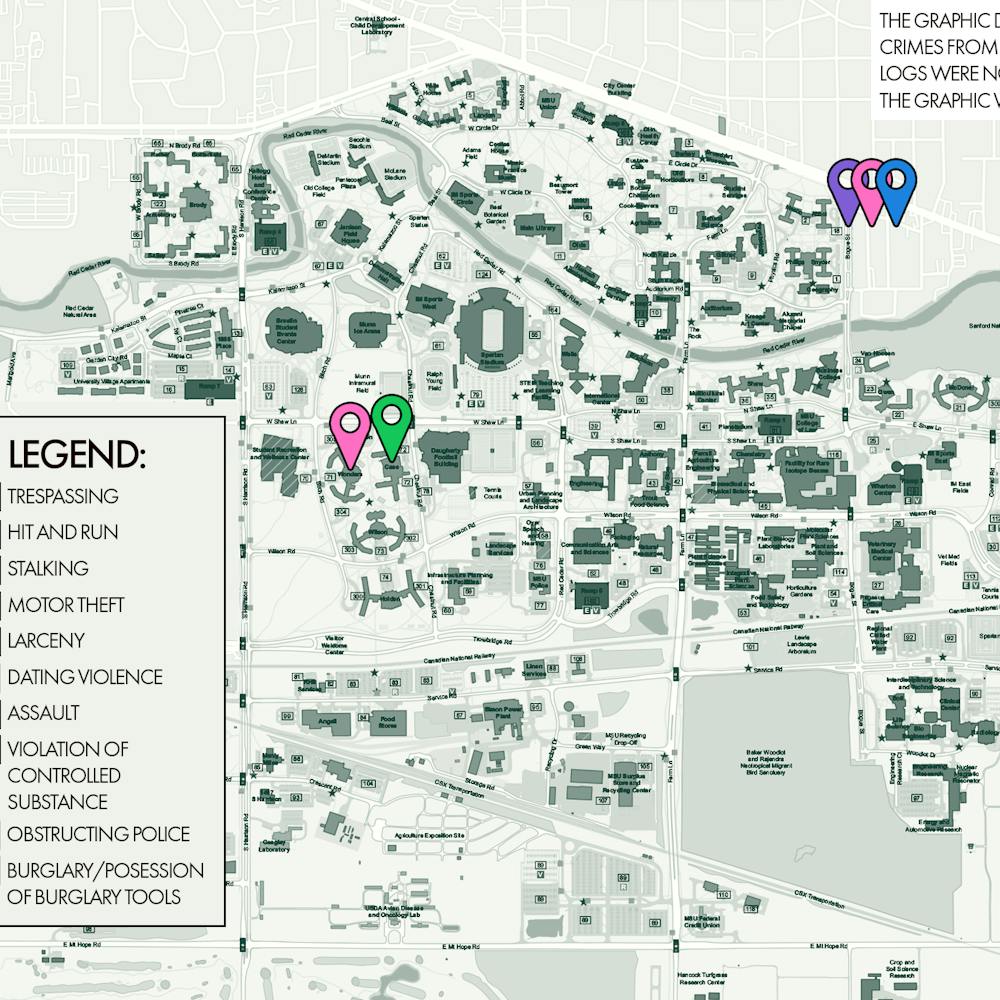Earning a bachelor’s degree not only represents hard work, but achieving a goal many college students strive to do before beginning their careers.
After leaving MSU 20 years ago without a degree to begin her career and now facing a deadly autoimmune disease, journalism senior Erin Kotecki re-enrolled at MSU online to finish what she started.
Early Years at MSU
Kotecki grew up in St. Clair Shores, Mich. and graduated from South Lake High School.
Kotecki first attended MSU in 1993 to pursue a degree in journalism, but in 1996, early into her junior year, she was offered a job in Orlando, Fla. at a radio station.
“My first real journalism job was for WDBO in Orlando from 97-99,” Kotecki said.
Though Kotecki had a job lined up in Orlando, there was a deeper reasoning for her leaving MSU.
“I was in a very abusive relationship at 21 years old and felt I needed to leave Michigan to make sure myself and my family were safe,” Kotecki said.
By using voice clips she gained while interning at a Port Huron, Mich. radio station, she found a job in news radio faster than she expected.
“It was a very difficult decision to make,” she said. “I hated leaving my parents and brother, but I needed to do something drastic to save myself.”
Kotecki said she felt lucky that an opportunity arose in Orlando, because of the issues she faced in Michigan.
Climbing the ladder of Journalism
Later Kotecki moved to Los Angeles to work for KFWB, where she was recognized for her reporting skills.
“I’ve received six Golden Mic awards for my work as a reporter at KFWB in Los Angeles,” Kotecki said. “They were for everything from best newscast to best investigative reporting.”
However, behind closed doors, Kotecki struggled without her bachelor’s degree as she moved forward in her career.

“I was constantly carrying around my AP stylebook,” Kotecki said. “A tool of journalists, and relying on mentors to help fill in the blanks.”
She said she knew that without a degree the process wouldn’t be smooth sailing in the journalism industry as she worked to prove herself and she would work to make up for her lack of a degree with skill.
“It was a trial by fire when I was thrown into the deep end of field reporting,” Kotecki said. “A degree most certainly would have helped.”
Diagnosis and Family
As years passed, Kotecki left her mark as a journalist. Landing her job in Orlando opened up many doors to her career and was where she also met her husband, Aaron Vest.
“I went to the University of Central Florida in the city of Orlando, which is where we met,” Vest said. “I was a radio television major which is how, again, how we met.”
With two children and a loving marriage, Kotecki seemed to have the world in the palm of her hands.
But then life threw her a curve ball.
Kotecki was diagnosed with lupus in 2010 after several years of being chronically sick. Because of her disease she was unable to continue her job as a journalist.
“The diagnosis was a big blow to myself and my family,” Kotecki said. “I didn’t even know what lupus was or what it entailed. If you Google ‘lupus’ you will immediately see the mortality rates, which are not good. This was beyond scary.”
According to the Centers for Disease Control and Prevention, women are five times more likely to die of the disease than men.
Dr. Reddog Sina, an alumnus from MSU College of Osteopathic Medicine and assistant professor health programs said, lupus is also known as “the great imitator” because when it affects many different organ systems, it looks like other diseases.
“It’s a disease that effects the immune system of the body,” Dr. Reddog said. “Essentially what it does is it goes haywire and the body starts attacking its own parts.”
It effects every organ system of the body, Dr. Reddog said, and can range from very severe to more easily managable. One of the treatments used for lupus is suppressing the immune system so it doesn’t attack the body.
“They do that with either steroids or immune-modifying drugs or they use what they call monoclonal antibodies, which are injectable drugs that effect the immune system to calm it down.” Dr. Reddog said.
In 2010 Kotecki was diagnosed with systemic lupus erythematosus, also known as SLE disease.
“She had been sick for a long time before the diagnosis came,” Vest said. “The doctors said they had to do an exploratory surgery, which lead to two other surgeries.”
After three surgeries, Vest was at work when he had received the call of his wife’s diagnoses.
“It was a pretty big shock,” Vest said. “Leading into those surgeries my attitude was, ‘yay, let’s have these surgeries, let’s get these done and the problems will be fixed.’”
With her family by her side, Kotecki found outlets to stay occupied during her time in the hospital.
“As the years went by and I battled my disease I found myself online a lot,” Kotecki said. “Reading, writing a blog, trying to keep myself busy while resting.”
While browsing online, Kotecki said she wanted to finish her degree at MSU after almost 20 years away. Kotecki, who is now 41, started researching the idea and came up with a plan.
“I realized that with Michigan State’s online courses it just might be possible that I could continue to rest my body while keeping my mind busy,” Kotecki said. “I spoke to some advisers and decided to go for it.”
Back to School
Erin decided she no longer wanted to sit in the hospital bed searching for options, so she decided to finish her degree in journalism at MSU.
“I reapplied to Michigan State and they accepted me, which shocked me,” Kotecki said.
With six Golden Mic awards and years of being a successful journalist in her back pocket, Kotecki had her heart set on finishing school.
“I didn’t want to register with the university as disabled or immediately tell any professors,” Kotecki said. “I didn’t want to use lupus as an excuse.”
MSU offers online courses that Kotecki said are easy to access and would give her more room to pace herself. Kotecki utilizes the online courses through MSU as she resides on the west coast.
“I can think of two times where I took my finals from the hospital bed,” she said. “I didn’t tell my professors I was hospitalized. Unfortunately, I’ve been hospitalized so many times I hated to use the excuse yet again.”
MSU professors have cooperated with Kotecki and do whatever is necessary to help her through to do well in classes, she said.
“The dean at the time took my decade of experience as a journalist and used it as my intern credit,” Kotecki said. “So I didn’t have to be an intern.”
Kotecki said she tries to be like any other student and does not desire special treatment.
“I thought and continue to think that my disability shouldn’t be an excuse for being late on a paper, forgetting an assignment or bombing a test,” Kotecki said. “Not having a degree was absolutely something I needed to overcome.”
What’s Next?
Kotecki can only take one to two classes per semester, anything more is too stressful on her body and mind.
“I’m not sure how I’m going to feel when I finally earn my degree,” Kotecki said. “It’s been this elusive unicorn for so long, I can’t image what it will be like when I can finally say I’ve graduated.”
Slowly but surely, Kotecki is focused on receiving her bachelor’s degree.
“Life at this moment is hard. I love going to school, but I hate being sick,” Kotecki said. “If I could relive my early days at MSU I’d take more core classes and work harder to graduate young.”
Despite her disease, she doesn’t let it stop her from achieving her goals.
“Who knows what I will do next, I like to push the limits on chronic illness,” Kotecki said. “Maybe I’ll go to graduate school.”







